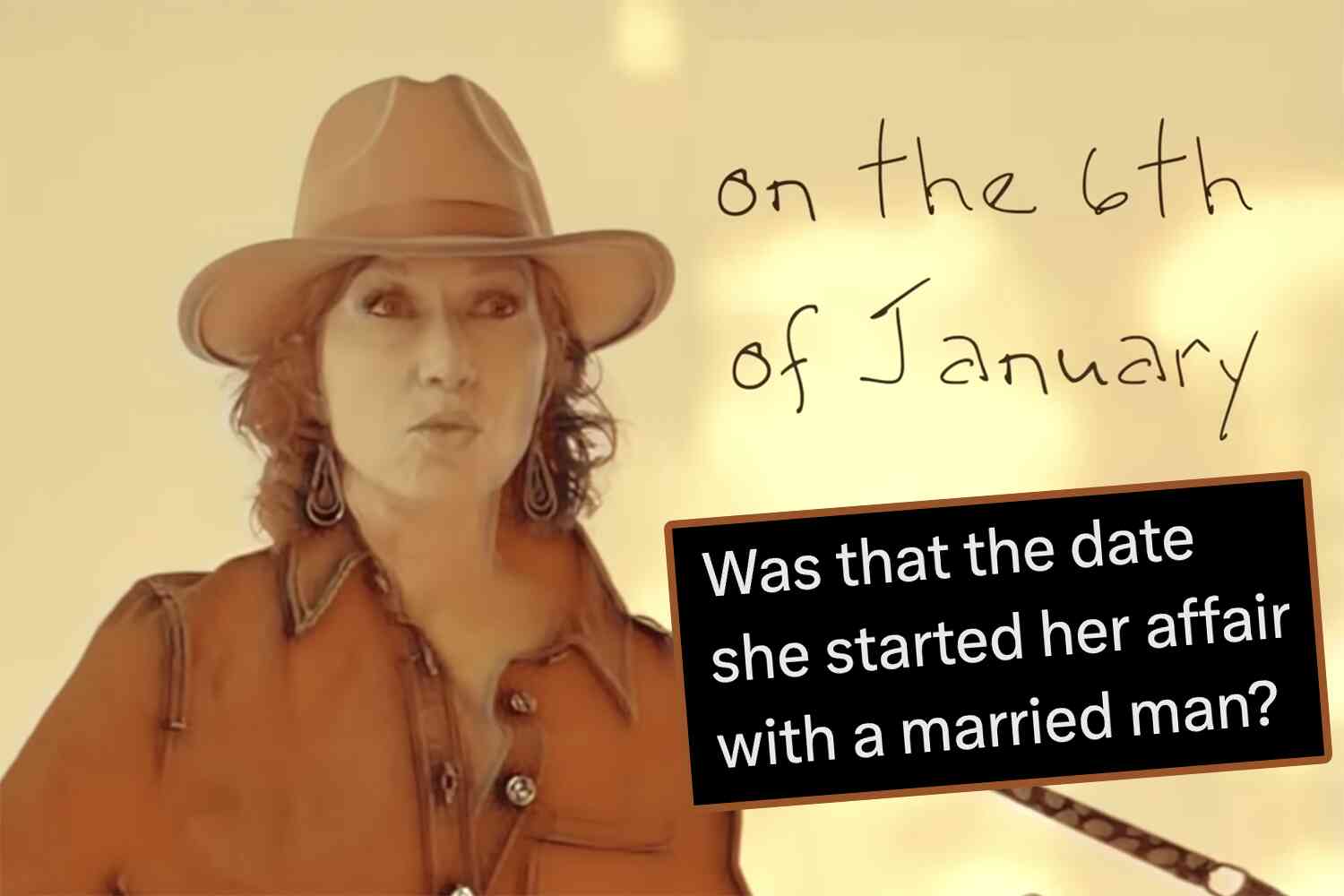"Why is Margorie Taylor Greene Like This?" asks The Atlantic, a publication that, over the course of the 7,500 words that follow, demonstrates its unique incapacity to ever understand the answer, never mind unearth it.
It's right there in the title. To ask the question is to betray the bias inherent in the premise.
You don't ask "Why are you like this?" as a compliment.
As for the sub-headline, "On the ground in the Georgia congresswoman's alternate universe," it is perhaps more revealing than intended. There is no doubt that Greene, or "MTG" as she is often called, lives in an "alternate universe" from the one that the people of The Atlantic, readers and writers alike, inhabit.
The Atlantic's target audience is wealthy 50-year-olds, with nearly half making over $100,000 and 14% making over $400,000.
In contrast, in MTG's universe, Georgia's 14th Congressional District which she represents, the people are younger with a median age of 37.9 and much poorer with a median household income of $54,634.
One thing both do have in common?
Both are really white.
People in MTG's universe fret over putting food on the table. People in The Atlantic's universe fret over whether the food on the table signals an appropriate level of status.
Maybe leave a couple copies of The Atlantic lying around, that should help.
Author Elaina Plott Calabro starts off her piece by noting that Greene can sometimes be late.
How late, you ask?
Very late.
The worst kind of late.
She was very late. A man named Barry was compelled to lead the room in a rendition of Lee Greenwood's "God Bless the U.S.A." to stall for time.
Using God for partisan political purposes!
But when she did arrive, the tardiness was forgiven and the Cobb County Republican Party's November breakfast was made new.
You are probably asking yourself, "I wonder if she was greeted?" Because you know, that's usually what happens when people arrive at an event, they are greeted.
Oh, but we have Calabro on the scene to give us the hard-hitting truth. This is the kind of pounding-the-pavement journalism that this country could use more of.
She wasn't greeted.
She was "beheld."
She was beheld, like a religious apparition. Emotions verged on rapture. Later, as she spoke, one man jumped to his feet with such force that his chair fell over. Not far away, two women clung to each other and shrieked.
I think someone snuck a creative writing class or two in with her Yale history degree.
There are elements of this piece that are exceedingly odd. Calabro can certainly write well enough, but she's young, and was not served well by her editors.
One example is the amount of space she devotes to telling us what she doesn't know.
Among the things I do not know about Marjorie Taylor Greene — she would not speak with me for this story — is what her wedding was like. A newspaper account, if it exists, has yet to turn up. I do not know whether she stood before an altar laden with white gladioli, as her grandmother once had, or whether the reception was a small affair at her parents' home in Cumming or something bigger somewhere else. I also do not know whether, on that day, she was happy: whether the quiet and respectable life that now unfurled before the new Mrs. Perry Greene felt like enough....
Another thing I do not know about Marjorie Taylor Greene: I do not know precisely how long it was before the shape of her life — the quiet, the respectability, the cadence of carpooling and root touch-ups — began to assume the dull cast of malaise.
I've never seen a writer go into such detail about the things she doesn't know.
Of course the specific elements of her ignorance that she decides to detail are telling in and of themselves.
She didn't know if Greene was happy on her wedding day?
What kind of a question is that?
She recounts later marital difficulties and is clearly trying to weave a narrative of middle-class housewife malaise to explain her later interest in politics but I'm guessing she was probably happy on her wedding day.
"The quiet, the respectability, the cadence of carpooling and root touch-ups," is more of the same, an attempt to paint a picture of a frustrated mom trapped in suburbia, ready to explode in conspiratorial Trump-fueled rage!
While those were things she knew she did not know, she says much else that she thinks she knows, but does not.
At one point, as she details Greene's high school career and her seeming come-out-of-nowhere arrival in the Washington scene, she noted this:
The good-but-not-great student was hardly, in other words, an overachieving scold already plotting her ascent to Washington. It's difficult to imagine an 18-year-old Ted Cruz bothering with something called the Hot Tuna Club.
Really? It's difficult to imagine that an adult did silly things when he was young?
Three-and-a-half minutes of web searching Ted Cruz as a young man (and I'm talking Bing here, it's not like I was using Google) got me this:
"Aspirations? Is that like sweat on my butt?" he asks. "Well, my aspiration is to, I don't know, be in a teen t-- film like that guy who played Horatio – you know, he was in Malibu Bikini Beach Shop?"
According to this book, he was suspended from high school for several days for going to a party, drinking and smoking pot.
On other occasions, he wrote, he was beaten up by drunk older kids at 2am, and reprimanded by the principal for a prank that involved covering a rival school's building in toilet paper and shaving cream, then fleeing in a 1978 Ford Fairmont with Wagner's Ride of the Valkyries blaring out of the car stereo.
It might be hard for Calabro to imagine, but would not have been very hard for her to check.
It's the kind of thing that makes you question everything she claims. This is a magazine article, not a dissertation, so I don't expect extensive footnotes, but aside from some interviews with people who knew Greene, she doesn't attempt to back up statements that increasingly come across as the assumptions of someone, despite her southern roots and brief tenure at The National Review, is hopelessly immersed in the elitist, or at least establishmentarian, bubble of the BosWash corridor.
For Marjorie Taylor, the first of Bob and Delle's two children, the result was a world steeped in a distinctly suburban kind of certainty: packed lunches and marble kitchen countertops, semiannual trips to the beach, and the conviction that everything happens for a reason.
A "distinctly, suburban kind of certainty"?
How does she know that? It's a strange Stepford-Wives formulation of suburbia, the "Pleasant Valley Sunday" of Carole King (via The Monkees), and one that never really existed for most of us who lived it.
She came of age in Cumming, the seat of Forsyth County. With her turtleneck sweaters and highlighted mall bangs,…
There are snotty little digs like this throughout the piece.
No Atlantic reader associates "mall" with anything other than banality and low-brow culture.

…Marge Taylor might have been any other teenage girl in America….
She goes all in with this.
At South Forsyth High School, class of 1992, she was a member of the Spanish club and a manager of the soccer team. She may not have been voted Most Spirited, but she dressed to theme during homecoming week; she may not have had the Best Sense of Humor, but by graduation she had amassed her share of inside jokes with friends...
If you're thinking, "someone got her hands on Greene's high-school yearbook," yeah, someone got her hands on Greene's high-school yearbook.

..."Shh … It's the people outside!" her senior quote reads in the high-school yearbook.
That's some Atlantic-quality journalisming right there.
Her college years were described similarly.
She did as she was supposed to do, graduating from South Forsyth High and then packing up and moving an hour and a half away, to Athens, for four years at the University of Georgia. She would flit all but anonymously through the campus of 20,000 undergraduates.
"Flit?" On what basis does she characterize her college years as "flitting"? The University of Georgia is a pretty good school.
You know who didn't flit through college?
Calabro!
Meet this week's Her Campus Celebrity, Elaina Plott '15! This southern, sweet, collegiate celebrity is a leader in truly all aspects of campus life, from YDN Weekend Editor to Pi Beta Phi Exec member to Tory Party chairman. Read on to learn about Elaina's favorite memories at Yale, embarrassing moments and all of her tremendous accomplishments.
Towards the end of her piece, Calabro spends a great deal of time dissecting a speech Greene gave on the floor of the House of Representatives:
"I understand how terrible it is because when I was 16 years old, in 11th grade, my school was a gun-free school zone, and one of my schoolmates brought guns to school and took our entire school hostage."
"I know the fear that David Hogg had that day," she pronounced. "I know the fear that these kids have."
She characterizes this account as having "only nominally resembled reality."
That was in the piece. In contrast, this is how she characterized it in her personal Twitter feed.
In short: she Lied
Why the difference?
I suspect the editors finally did their job here.
Calabro interviewed the teacher involved in the incident, someone who clearly has political differences with Greene and different interpretations of the incident, and linked to an article about the incident, all of which I examined with care.
Greene's account unquestionably is cast in a manner for maximum political effect. The "entire school" was taken hostage in a metaphorical sense (it was ultimately just one classroom) but you could see how such an event could have a profound effect on an impressionable 16-year-old.
I suspect even The Atlantic editors knew that accusing Greene of having lied would itself be a lie.
But hey, anything goes on Twitter, right?
There are some fascinating things I learned about MTG from this article that I knew nothing about. MTG was, for example, a CrossFit fanatic for a while (and apparently remains a fitness enthusiast). Calabro detailed her marital troubles, affairs, brief reconciliation, and more recently, impending divorce, none of which I was aware of. She handles those things well enough, although always trying to imbue them with a meaning beyond what these things always are, personal tragedies.
In the end, Calabro seems like a nice enough person, and while she attempts to answer the question posed in the headline, she only gets it half right, and in doing so, totally misunderstands the seismic shift taking place in our current political landscape.
She concedes that Greene is channeling the anger of her constituents, the sense of disenfranchisement, and suspicion of formerly trusted institutions.
What she misses, entirely, without so much as a nod, is that that anger, sense of disenfranchisement, and suspicion of formerly trusted institutions is not inchoate rage at an imagined foe.
It is, overall, legitimate. Her constituents don't like the hard-left turn this country has taken, they don't like the encroachments on their freedoms. They don't like being told that if a man throws on a dress he can compete with their teenage daughters on the athletic field and change in the same locker room.
They don't like it when the FBI is told to treat parents speaking up for their children at school board meetings like terrorists. They don't like when they are told to shut up and admit they are all white supremacists at heart. They don't like when they are forced to inject themselves with an experimental vaccine in order to feed their families. And they certainly don't like when writers from Yale say this without any self-awareness of how thoroughly condescending it is particularly coming from a Yale graduate:
People liked that she was ordinary. In the present landscape of conservative politics, ordinariness was a branding opportunity.
Whatever you might think of MTG, she is anything but ordinary. She was simply living her life as she chose until she realized that she and those around her were rapidly losing the right to live that life but instead were being increasingly forced to live one that has been fast becoming unrecognizable what with its constantly expanding universe of pronouns and gender identities, explicit racism masquerading as "equity," and far too many "conspiracy theories" that have turned out to be true.
That is why Marjorie Taylor Greene is "like this."









